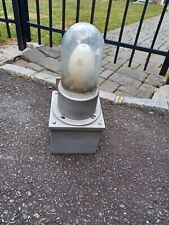"Brooklyn Bridge Commission" John Dutton Steele Signed Check Dated 1868 For Sale

When you click on links to various merchants on this site and make a purchase, this can result in this site earning a commission. Affiliate programs and affiliations include, but are not limited to, the eBay Partner Network.
"Brooklyn Bridge Commission" John Dutton Steele Signed Check Dated 1868:
$139.99
Up for sale a RARE! "Brooklyn Bridge Commission" John Dutton Steele Signed Check Dated 1868.
ES-5302E
. DUTTON STEELE is the eldest son of John D. Steele, of
Chester County, Pa., who migrated with his family from England in 1795, and
first settled in Whitemarsh township, Montgomery Co., where he resided for
seven years, after which he married Ann, daughter of Hugh Exton, of Hunterdon
County, N.J., and purchased a tract of land in central Chester County, upon
which he resided during the remainder of his life. There J. Dutton
Steele was born in 1810, and at the age of eighteen, after being educated in
the mathematical schools of Chester Co., he joined a corps of engineers engaged
in the surveys for the internal improvements of Pennsylvania, and continued in
the service of the State for two years. In 1830 he entered the service
of the Baltimore and Ohio Railroad Company, the construction of which work was
at that time being commenced, and continued in that service for ten years having
been connected chiefly with the construction department until their rails had
reached Harper's Ferry, and had been extended to Baltimore, Md., and during in
interval in that service he located the road between Troy and Ballston Spring
in the State of New York. His last appointment with the Baltimore and Ohio
Company was in connection with the location and construction of the Western
Division of the road, extending, from Cumberland, Md., to the Ohio River.
In 1837 he was married to Elizabeth, daughter of Judge Thomas Capner, of
Hunterdon County, N.J., and settled in Wheeling, Va., from which point he
conducted all extensive system of surveys necessary for the location of the
work in charge. The great financial break-down of that period, however, caused
the railroad company to suspend the construction of their road west of
Cumberland, and consequently his engagements with them terminated in 1840. He
then purchased a farm near Downingtown, Pa., and followed the pursuits of
agriculture for six years. . . .In 1846 he made a survey of Pittsburgh
and its environs for the purpose of indicating the practicable routes for
entering that city with railway improvements, and entered the service of the
Philadelphia and Reading Railroad Company on the 1st of January, 1847, in
charge of the roadway department of that road, and continued in the service of
that company, in the several capacities of chief assistant engineer, chief
engineer and vice-president, until 1867, -- a period of nearly twenty years. .
. .He introduced into railway practice the ribbed stone arches for skew
bridges, and availing himself of the experiments made by a commission appointed
by the Queen of England in 1847 to investigate the "applicability of iron
to railway structures," the report of which was published in 1849, he
introduced wrought-iron girders for bridges of short spans, and was the first
to use electricity as in auxiliary to rock-blasting to any considerable extent,
with no light to guide him but some experiments which had been made in English
stone quarries, and without the aid of which the tunnels on the Reading
Railroad could not have been widened, in the brief space of four months
allotted for the completion of the work, with safety to the passing trains.
In 1868 he was elected president of the Sterling Iron and Railway Company, and
removed to Brooklyn, and assumed the duty of developing an extensive iron ore
property in Orange County N. Y., in which position he continued for three
years. During this period he made explorations for railroad extensions in the
States of Michigan, Wisconsin and Minnesota; took all active part in organizing
the American Society of Civil Engineers and contributed to their journal, and
was appointed one of a commission of civil engineers to examine and approve the
plans of John A. Roebling for the East River [i.e., Brooklyn] suspension bridge. . . . In 1870 he returned to
his residence in Pottstown, Pa., and was in charge of the construction of the
Nesquehoning Valley Railroad and the Nesquehoning tunnel, in Carbon County,
Pa., and in the latter work, availing himself of the experiments then in
progress at the Hoosac tunnel, made use of compressed air as a motive-power for
the rock-drills. He was next appointed to select the location, amid
several conflicting interests, for the extension of the Baltimore and Ohio
Railroad from Central Ohio to Chicago, and after the necessary surveys,
recommended the route upon which that road is now built, and was also engaged
on the Wilmington and Northern and Berks County Railroads and other works of
lesser importance.

Related Items:
Danbury Mint Brooklyn Bridge NYC 21" Diorama Model
$120.00
$299.00
1900s Bird's Eye View Brooklyn Bridge New York Unposted Postcard
$12.95



